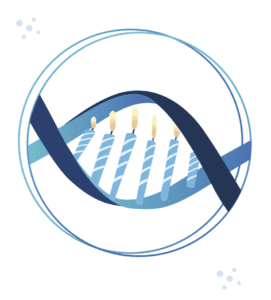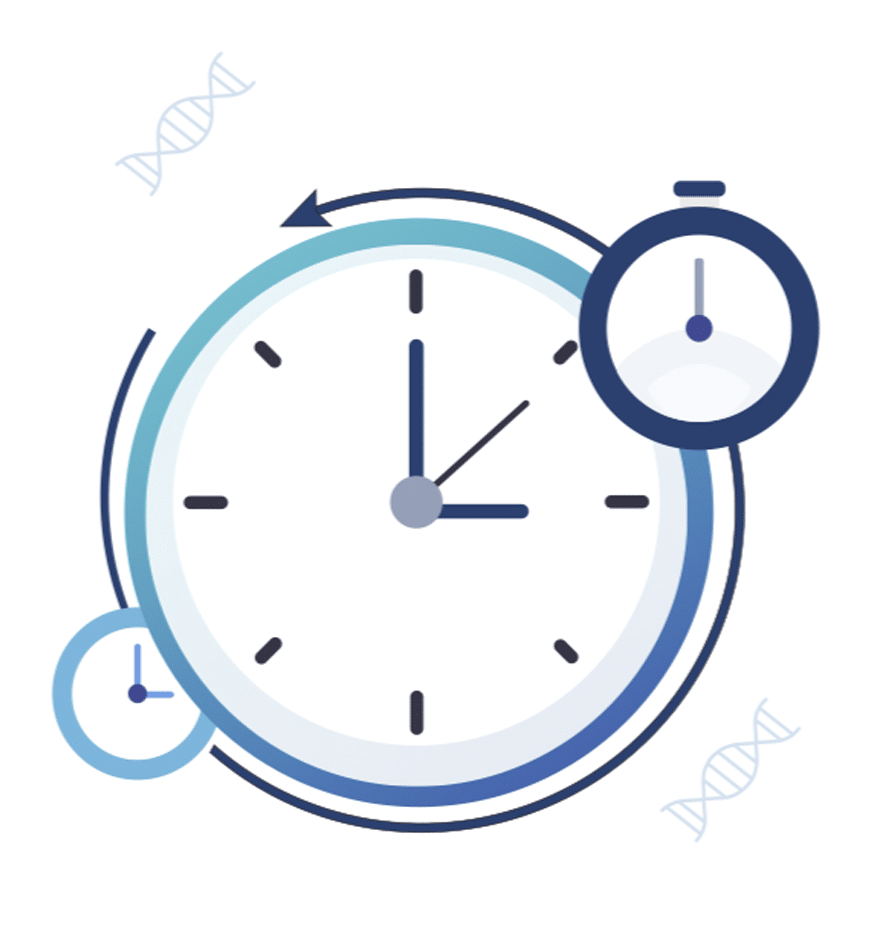Desktop Menu
Request Button
Treatments performed only by Physicians
Phone / Menu Button
DISCOVER YOUR TruAge
MOST ADVANCED EPIGENETIC CLOCK IN THE WORLD

CHRONOLOGICAL AGE VS BIOLOGICAL AGE?
CHRONOLOGIAL AGE
- The number of years that have passed since our birth
- Cannot be influenced by lifestyle and eating habits.
- Has little relevance to how you feel and function
BIOLOGICAL AGE
- How old our cells really are, therefore, our real age
- Can be reversed by attending to your health
- The most important component to the aging process

Once you send in a small blood sample, our lab uses ultra-precise technology and complex algorithms to sort through your DNA. We look at millions of tiny markers and analyze their patterns on your DNA. When you get your report back, your provider will offer in-depth analysis of areas in your life that are affecting your Biological Age
REDUCING YOUR BIOLOGICAL AGE BY 7 YEARS HAS BEEN SHOWN TO CUT THE RISK OF DEVELOPING
AGE-RELATED DISEASES IN HALF
Biological Age is deeply tied to your long-term health. Many disease occur at higher rates when you get older, because more and more of your cells aren’t functioning the way they should.
A higher Biological Age is correlated with a higher risk of developing age-related diseases (like Alzheimer’s Disease and Cancers). A lower Biological Age is correlated with reduced risk of disease, and a longer lifespan.
You can change your Biological Age, and change your risk of disease.
If you could reverse your risk of age-related disease and avoid sickness, wouldn’t you want to know how?
- – Nutrition
- – Smoking
- – Alcohol consumption
- – Behavior
- – Stress
- – Physical activity
- – Medication
- – Pollution
- – Sleep habits
Your biological age can be slowed, and even reversed. You can apply changes to your lifestyle and use TruAge to show – and even track changes over time – how your lifestyle is changing YOUR risk of incidence of disease.
While scientists believe about 40% of your DNA Methylation is out of your hands, due to what you inherited from your parents or experienced in childhood – that still leaves over half of your gene expression in your own hands.
As low as you can get it!
When your Biological age is less than your Chronological age, it means that you are living a lifestyle that is actively helping you lengthen your lifespan and prevent (or at least greatly reduce!) the chance of chronic illness and age-related diseases.

WHAT IS DELIVERED WITH YOUR TRUAGE TEST?
You’ll receive a breakdown of all the different factors known to affect Biological Age, and where you stand. Your Biological Age itself can be used as a tracking measurement over time, to see how well anti-aging interventions are working for you.
This looks at how quickly your Biological Age is changing, like a speedometer. If it’s slowing down, you’re on the right path.
Your provider will also receive some specific-gene risk reports, that will look at your current risk for things like diabetes and obesity.
CHANGING YOUR RECIPE
A DNA test can look at what genes you have. But an Epigenetic test can look at what genes are being used, and how much.
If your DNA is a giant recipe book for your body, and your genes are individual recipe steps…
Then epigenetic markers are like sticky notes that tell the reader to double this step, skip this one, or “actually, this recipe is terrible, don’t even start.”
These markers don’t change the DNA itself – they don’t rewrite the recipe book – but they do change how the reader (your cells) interpret and act on those instructions.
When your DNA is being read differently, that makes huge changes across your entire body. It affects every part of you.

Treatments performed only by Physicians

